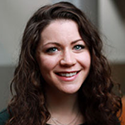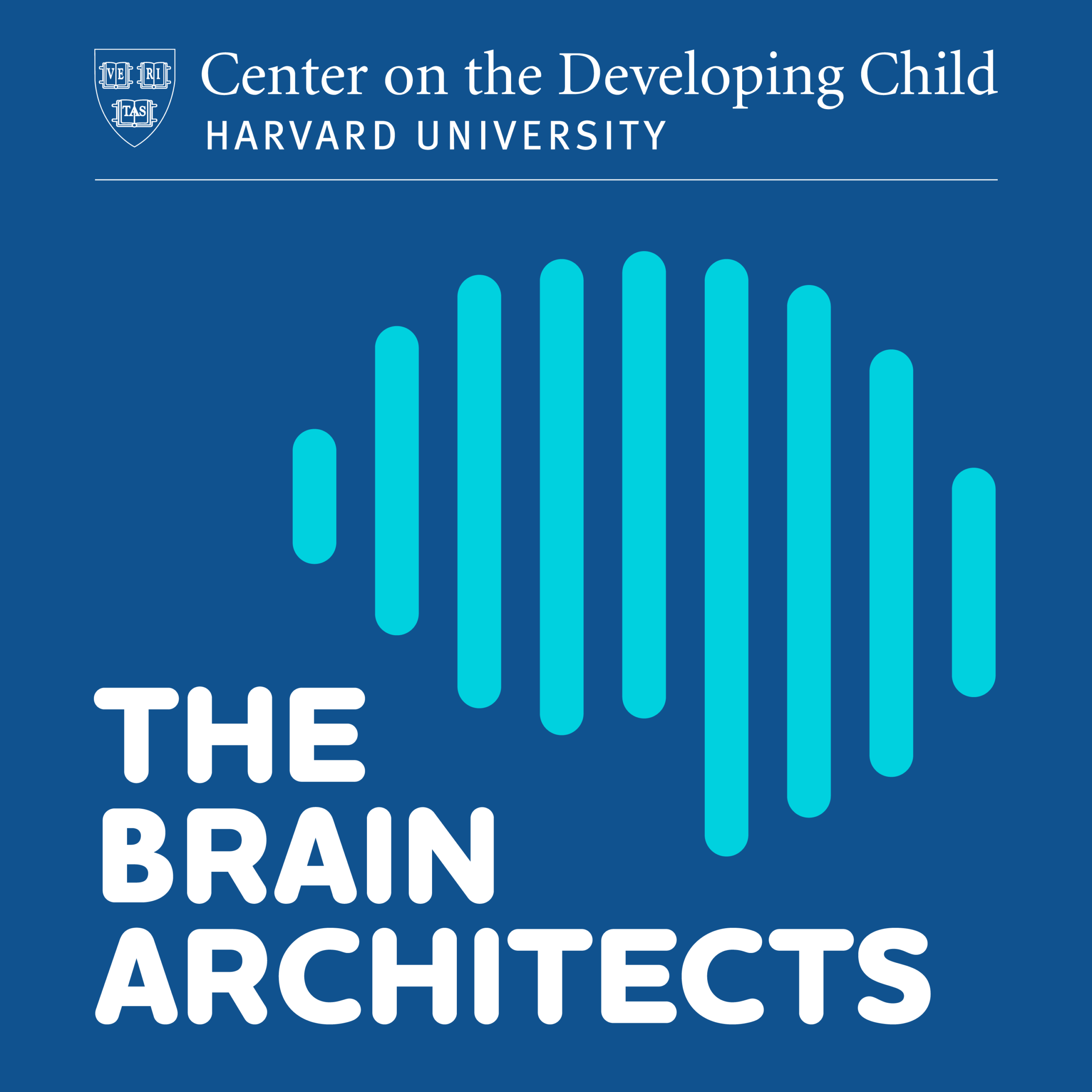COVID-19 Special Edition: Mental Health in a Locked-Down World
Description
While some countries and U.S. states are beginning to reopen businesses and other gathering places, the pandemic is still very much with us. Physical distancing will likely be a way of life until a vaccine for COVID-19 is widely available. So much change, including the threat of illness, and grief of those who have lost loved ones, means that mental health is a great concern.
Fortunately, there are things we can do to support our mental health at this time, especially when caring for young children or other family members. In this episode of The Brain Architects, host Sally Pfitzer speaks with Dr. Karestan Koenen, Professor of Psychiatric Epidemiology at the Harvard T.H. Chan School of Public Health, and Dr. Archana Basu, Research Associate at the Harvard T.H. Chan School of Public Health, and a clinical psychologist at Massachusetts General Hospital. They discuss what supporting your own mental health can look like, as well as ways to support children you care for at this time. They also talk about what mental health professionals all over the world are doing to help take care of our societies in the midst of the pandemic, and how they’re preparing for the challenges that come next.
Speakers
<figure id="attachment_4958" aria-describedby="caption-attachment-4958" style="width: 125px" class="wp-caption alignnone">
 <figcaption id="caption-attachment-4958" class="wp-caption-text">Sally Pfitzer, Podcast Host</figcaption></figure>
<figcaption id="caption-attachment-4958" class="wp-caption-text">Sally Pfitzer, Podcast Host</figcaption></figure><figure id="attachment_5197" aria-describedby="caption-attachment-5197" style="width: 125px" class="wp-caption alignnone">
 <figcaption id="caption-attachment-5197" class="wp-caption-text">Dr. Archana Basu, Research Associate, Harvard T.H. Chan School of Public Health, and clinical psychologist, Massachusetts General Hospital</figcaption></figure>
<figcaption id="caption-attachment-5197" class="wp-caption-text">Dr. Archana Basu, Research Associate, Harvard T.H. Chan School of Public Health, and clinical psychologist, Massachusetts General Hospital</figcaption></figure><figure id="attachment_5196" aria-describedby="caption-attachment-5196" style="width: 125px" class="wp-caption alignnone">
 <figcaption id="caption-attachment-5196" class="wp-caption-text">Dr. Karestan Koenen, Professor of Psychiatric Epidemiology, Harvard T.H. Chan School of Public Health</figcaption></figure>
<figcaption id="caption-attachment-5196" class="wp-caption-text">Dr. Karestan Koenen, Professor of Psychiatric Epidemiology, Harvard T.H. Chan School of Public Health</figcaption></figure>Additional Resources
- International Society for Traumatic Stress Studies: Self-Care for Providers
- International Society for Traumatic Stress Studies: Vicarious Trauma Toolkit
- Massachusetts General Hospital: How to Talk to Your Children About the Coronavirus (COVID-19)
- Massachusetts General Hospital: Parenting At a Challenging Time: Supporting children facing the illness/ loss of a loved one
- Massachusetts General Hospital: Psychiatry guide to Mental Health Resources for COVID-19
- National Child Traumatic Stress Network pandemic resources
- SAMHSA Disaster Distress 24/7 Helpline: 1-800-985-5990 or text ‘TalkWithUs’ to 66746
Transcript
Sally: Welcome to The Brain Architects, a podcast from the Center on the Developing Child at Harvard University. I’m your host, Sally Pfitzer. Since our last podcast series was released, things have changed drastically as a result of the Coronavirus pandemic. During this unprecedented time, we’d like to share resources and provide guidance that you may find helpful. So, we are creating a series of podcast episodes that address COVID-19 and child development. This episode is the fifth in our series, and todays guests are Dr. Karestan Koenen, Professor of Psychiatric Epidemiology at the Harvard T.H. Chan School of Public Health, and Dr. Archana Basu, Research Associate at the Harvard T.H. Chan School of Public Health and the Clinical Psychologist and Massachusetts General Hospital. Thank you both for being here I’m really looking forward to the conversation.
Dr. Koenen: Thank you Sally. It’s great to be here.
Dr. Basu: Thank you so much.
Sally: So Karestan, what makes this pandemic different from other traumatic events that many people have experienced in terms of mental health?
Dr. Koenen: There are a number of characteristics that make the COVID-19 pandemic different than other traumatic events, even than other disasters. I actually lived in New York City during the 9/11 terrorist attacks, and I’ve seen some similarities in terms of this in that things were shut down, there was a pervasive feeling of threat, there was loss of life, and it was very disruptive and it was something that people really – in New York, anyway – talked about for a long time. It persisted and affected everyone in the city. What’s different about this is the length of time people are being affected, how pervasive it is in terms of our community but the state, nationally, and globally it’s the first time that I’ve had experienced a traumatic event that my colleagues in Africa are experiencing some version of it, my colleagues in Mexico, and then I think because it affects so many different aspects of our lives. We talk about trauma, and we think of things that are unpredictable and uncontrollable and overwhelm our ability to cope. This has certainly been unpredictable; a lot of things feel out of our control and on top of that we have other things that can in themselves be traumatic like unexpected bereavement, job loss, a stigma people are experiencing. I think the sheer pervasiveness of it – how it’s affected every aspect of our life. Finally, I think one of the things we know about disasters is that social support is so important for resilience, for people’s recovery, and to buffer them from the effects of disaster. In the middle of this, we’re being told to physically distance to prevent the spread of COVID, and that really cuts into our ability to get social support or to socially support each other, so that is something certainly different than I’ve experienced before or anything I’ve studied actually.
Sally: So Archana, I know you work with children and families on all of these issues around grief, which I know we were just kind of referencing. I’m wondering if you can talk a little bit more about the different kinds of grief that families might be experiencing at this time.
Dr. Basu: I guess I’d like to start by acknowledging that loss is a very common part of human experience, even outside of the pandemic. As an example, in the U.S. each year more than 600,000 people die of heart disease alone. This is not to minimize the losses that we’re experiencing now, but only to say that we as humans are used to experiencing losses and adapt to it on a pretty ongoing basis, and there’s a large body of evidence to suggest that we are adaptive and resilient. This is especially true for children because child development inherently offers many opportunities for change and positive adaptation with appropriate support. That being said, as Karestan highlighted, there are many unique elements to the pandemic in terms of the pervasiveness and the unpredictability as well as the limited or lack of access to typical support systems or resources, for instance due to physical distancing requirements. That certainly makes it unique and challenging. As of today, more than 80,000 fatalities have been reported in the U.S. alone. Families are certainly worried about their own health, their loved one’s health and well-being, or are coping with a death of a loved one. Right now, with travel restrictions, not being able to come together as families or with friends, that’s definitely a pretty big challenge. Many families have been unable to engage in typical funeral rituals, and parents are wondering how to support kids, and some are even wondering whether to say something. Generally, the research supports the idea that open age-appropriate communication can be very valuable in helping children. There are some specific helpful resources; really practical tips in terms of what language or words parents can use to explore how their kids are understanding these experiences, what worries they might have, and we can certainly provide links to that in perhaps the website to our podcast. Briefly, I will just say that open communication really helps to understand what children are observing and





